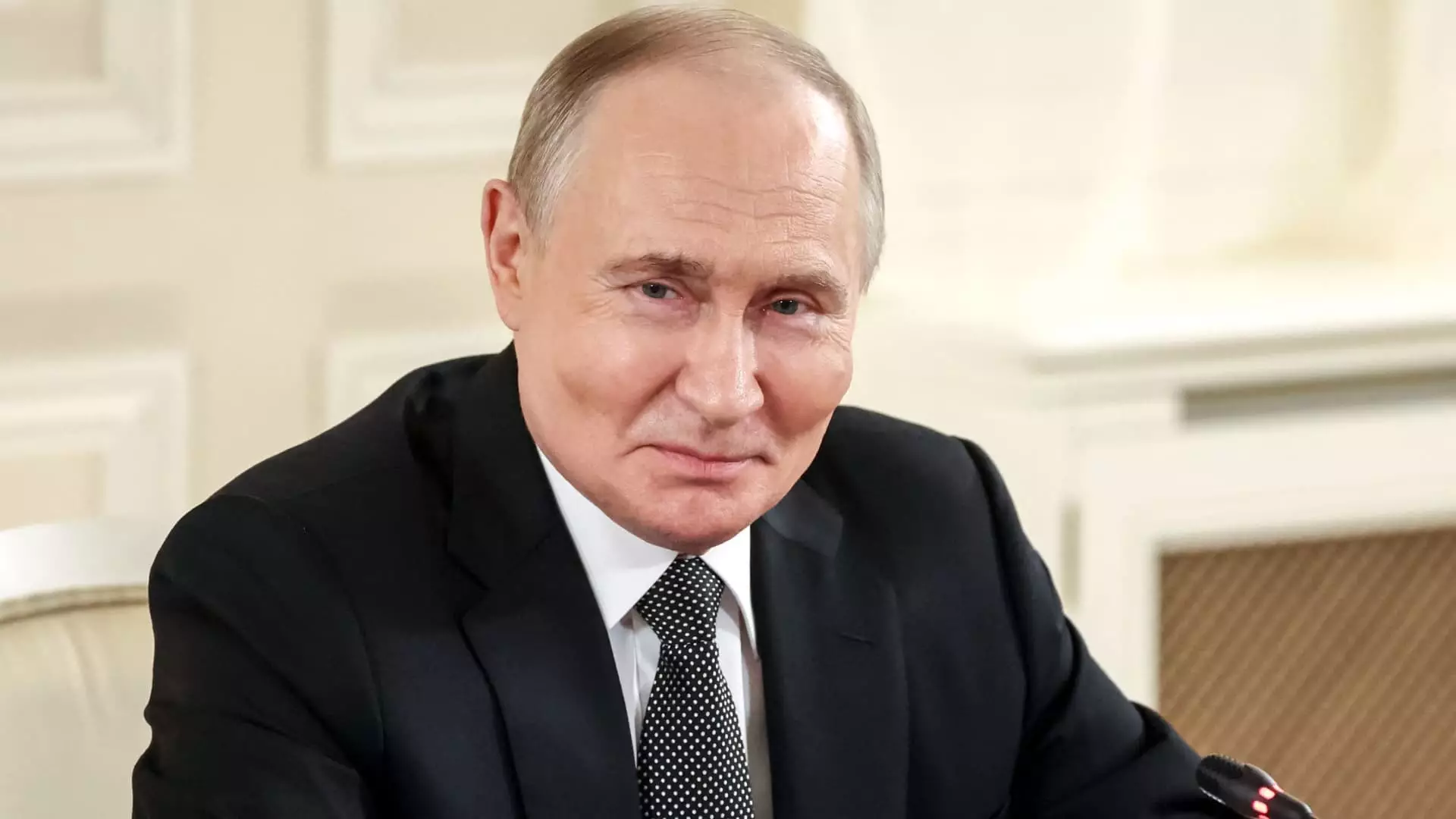In a political landscape often characterized by superficial neutrality, the recent comments by former President Donald Trump expose the superficiality of claims to balanced judgment. While asserting dissatisfaction with Vladimir Putin’s handling of Ukraine, Trump simultaneously seeks to position himself as a pragmatic voice amidst chaos. However, this narrative glosses over uncomfortable truths—namely, that his criticisms obscure more than they reveal. True leadership requires candor, not selective outrage rooted in political expediency. Trump’s inflammatory language about Putin—describing his responses to US efforts as “bulls—“—betrays a lack of nuanced understanding, reducing complex geopolitical conflicts to petty characterizations that serve domestic political interests rather than genuine diplomacy.
Moreover, Trump’s focus on the blame game, suggesting past administrations are responsible for Ukraine’s current bloodshed, reflects a tendency to deflect responsibility and sidestep analysis. It underpins a broader pattern in centrist liberalism: an unwillingness to confront uncomfortable truths about power, militarism, and international complicity. Instead of fostering a critical approach to foreign policy, the narrative becomes entangled in blame-shifting, which ultimately hampers efforts to forge constructive solutions.
Diplomacy as a Spectacle of Performance
The White House’s portrayal of diplomacy and military aid as mere political chess underscores a fundamental misconception: international conflict is reduced to soundbites, political theater, and blame rather than serious engagement. Trump’s recent remarks about the pause in weapons shipment exemplify this superficiality. When asked about who ordered the halt, he dismissively responds with a joke, signaling discomfort with actual accountability. This reveals a troubling detachment from the gravity of U.S. foreign policy decisions, further commodifying diplomacy into a spectacle rather than a tool for peace.
Furthermore, Trump’s overarching narrative dismisses the agency of the Ukrainian people and their allies, framing their struggle solely through the lens of American military support. It’s a troubling portrayal—one that eschews empathy or a genuine understanding of sovereignty and resistance. Instead, it emphasizes American strategic interests, subtly aligning with the notion that U.S. involvement is merely transactional rather than rooted in a moral obligation to defend democracy and human rights.
The Perils of Personalizing Geopolitical Crises
What is most disconcerting about Trump’s comments is their personalistic tone, situating himself as an arbiter of truth—an ironic stance for someone whose record is riddled with contradictions. His claim that Putin’s actions are a response to past Democratic administrations not only distorts history but also abdicates responsibility from the United States’ own role in fostering international instability.
Trump’s dismissive attitude towards diplomatic efforts, describing his call with Putin as a “disappointment,” exemplifies a broader pattern of viewing complex geopolitical challenges through a narcisistic lens. It reinforces the idea that world affairs are driven by personal dealings and one-on-one negotiations rather than systemic challenges like imperial overreach, economic sanctions, or the failure of multilateral diplomacy.
In positioning himself as a skeptical outsider—critical of Putin yet unwilling to fully condemn his actions—Trump highlights the paradox inherent in centrist liberalism’s posture: a desire to appear moderate and balanced, but often veering dangerously close to apathy or cynicism. Genuine leadership demands more than disapproval or political posturing; it requires a clear moral stance rooted in justice, human rights, and global stability—principles that are too often sacrificed at the altar of political convenience.


Leave a Reply